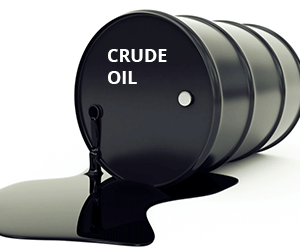The current reality dictated by the global energy transition and demand erosion as a result of the impact of the COVID-19 pandemic has made cost optimization an imperative in the Nigeria oil and gas industry, Group Managing Director of the Nigerian National Petroleum Corporation (NNPC), Mele Kyari has said.
Mr Kyari was speaking in Abuja on Tuesday at the launch of the Nigerian Upstream Cost Optimisation Programme (NUCOP) by the Minister of State for Petroleum Resources, Timipreye Sylva.
In the wake of the current COVID-19 crisis, which disrupted normalcy in the operations of the global economy, the international crude oil market was impacted, with oil prices crashing below $10 per barrel amid growing shrinking demand.
During the period, it became uneconomical for oil producing countries to sustain their production capacities, with the Organization of Petroleum Exporting Countries (OPEC) agreeing to limit members’ production capacity through a programme to strengthen crude oil prices and stabilize the market.
The arrangement, which began January 1, 2017, would continue to be in place till April 2022, even as the industry is contending with the impact of the emerging reality in energy transition from fossil fuel to other forms or renewable energy alternatives.
In the face of the current reality, Mr Kyari urged NNPC partners and other players in the oil and gas industry to support in the national oil company’s effort towards reducing operational costs to achieve its $10 or less per barrel production cost target.
He said the imperative of cost optimization is dictated by the current reality by the global energy transition and demand erosion as a result of the impact of coronavirus pandemic on the global economy.
“It is in our informed interest to optimize our cost of production. The realities of energy transition and investor choices are very much clear to us. There is nowhere in this world where a less cost-efficient operator can survive today,” the GMD said.
Mr Kyari called on NNPC partners and other industry players to adopt measures as transparency, collaboration, efficiency and shared services to help in driving down their cost of production in order to meet the $10 per barrel or less target.
Under the NNPC operational theme for the year known as ‘Execution Excellence’, he said the Corporation would achieve a contracting cycle of six months or less.
This arrangement, he noted, would help create efficiency and drive down unit operating cost to sub-$10 per barrel level.
The Minister of State for Petroleum Resources, Timipre Sylva, in his speech at the occasion gave the current average cost of production of a barrel of oil by the Joint Venture players at below $30 per barrel.
With Production Sharing Contract (PSC) production cost currently below $20 per barrel, the minister said there was need for cost optimization in order to keep the oil and gas industry in Nigeria afloat.
“Today’s engagement with industry stakeholders, under the NUCOP, is part of the resolve of the Muhammadu Buhari administration to confront this challenge of high production cost in the oil and gas industry.
“I expect robust discussions and a realistic roadmap to achieve the cost optimisation objectives,” the Minister said.
The Chairman, Senate Committee on Upstream, Bassey Akpan, in his goodwill message said the 9th National Assembly would pass the Petroleum Industry Bill (PIB) to provide a conducive environment for all operators in line with global best practices.
Leaders of agencies, trade groups and labour unions in the Oil and Gas Sector such as the Nigerian Content Development and Monitoring Board (NCDMB), Oil Production Trade Section (OPTS), Independent Petroleum Producers Group (IPPG), Petroleum Technology Association of Nigeria (PETAN), Petroleum and Natural Gas Senior Staff Association of Nigeria (PENGASSAN) and the Nigeria Union of Petroleum and Natural Gas Workers (NUPENG) who spoke at the event described the initiative as a welcome development and pledged their support for NUCOP.
NUCOP is an industry-wide initiative designed to optimize Nigeria’s upstream operating expenses through process enhancement and industry collaboration to ensure improved and sustainable profitability for all stakeholders.




